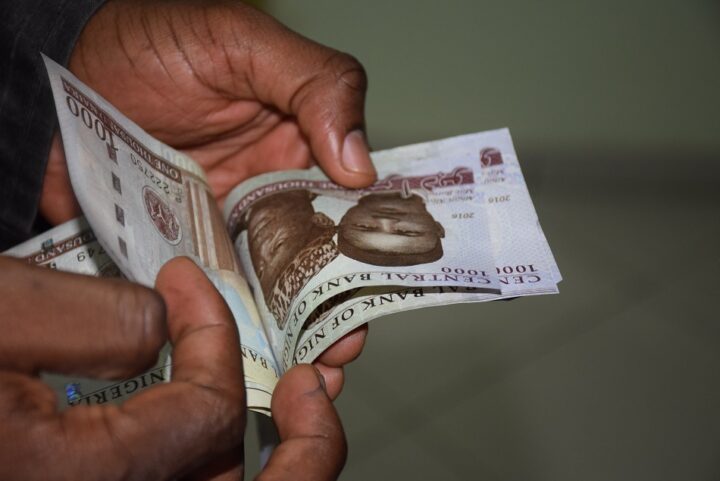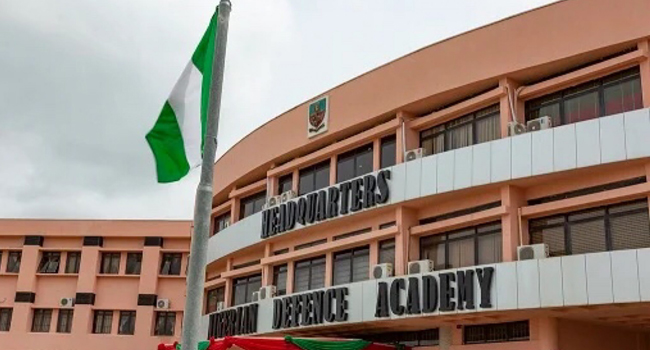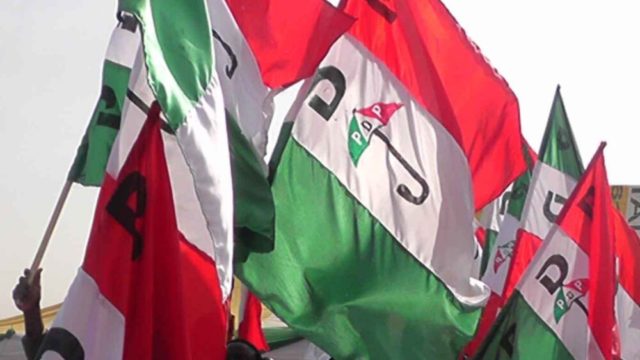Imagine ocean without water. Imagine forest without trees. Imagine desert without sand. Imagine atmosphere without oxygen. Imagine the universe without sunlight. Imagine Nigeria of today where GSM services were still exclusivity of the rich, elite and upper middle class. Imagine Nigeria where GSM networks cum internet connectivity were still limited to the major cities.
Imagine “giant of Africa” where majority of her poor and lower middle class could still not afford GSM lines, mobile phones and their attendant services—and still have to queue at phone boots to make and receive calls. Imagine if potential telecom subscribers were still buying SIM cards at an exorbitant prices and being billed per minute. Imagine 2021 Nigeria without social media—Facebook, Twitter, Instagram, WhatApp, etcetera.
Then, Imagine the nation’s telecom industry without Globacom! Who could have broken the duopoly of the legacy mobile operators that debuted in Nigeria two years before Globacom? Who could have been the catalyst that ignited what has become a revolution in the sector? Which service provider could have hastened the emergence of mobile banking in Nigeria? What of arrival of Fintech companies made possible by broadband services?
Without reliable and affordable mobile network cum internet services, should we be talking about Netflix, ShowMax, Zoom, Skype, Tele-medicine, online shopping, e-conference, Uber, Bolt, social media live streaming, etcetera,? The advent of GSM in Nigeria and the speed of light at which it cascaded to majority of the nooks and crannies of Nigeria was made possible by fierce competition created by the emergence of Globacom on the scene.
Advertisement
Like an explorer about to sojourn on a voyage to rescue millions of Nigerians cum Africans trapped in the doldrums of telecom unavailability, Dr Mike Adenuga, Jr., got hit by a ray of an idea, he conceptualized it, transformed it into vision, of which was translated into a statement tagged, “Building Africa’s biggest and best telecommunications network”.
Despite being the first indigenous GSM operator to be licensed, Chief Adenuga was not scared of the behemoth foreign service providers already in the country—clear two years ahead of him in the telecom market. Like “The Bull” he is fondly called, he feared no competition. Rather, he became the competition. He threw in the dice. A new dawn beckoned.
On August, 2003, Globacom—Nigeria’s first indigenous mobile operator was born with an ambitious mission statement: “To be the largest, most successful entertainment, information and telecommunications solutions provider, in Nigeria and Africa.” Starting with the pay-off line, Glo with Pride, at the launch, Globacom hit the ground running with superior 2.5G network, compared with what was obtainable in the sector then.
Advertisement
Globacom did not only become the game-changer but via innovative prowess disrupted the market; raised the bar— inadvertently and advertently, began what has been later christened as telecom revolution in Nigeria. When legacy mobile operators insisted that per second billing system was not economically practicable at the moment, and covertly held Nigerians at oligopolistic jugular of duopoly, Globacom—like a strongwilled bull driving the renaissance, broke the jinx and pioneered per second billing in the country. This became the magic wand that made the conspicuous difference.
The subsequent crash of cost of SIMs and calls from N20,000 and N50 per a minute, respectively, to as low as N200 and 5 Kobo per second, ensured that more Nigerians—who were hitherto unable to own SIMs cum mobile phones, could afford them with the corresponding services. Nigerians were bitten by the bug of Glo vis-a-vis mobile phone services. In a chain reaction, massive demands for mobile network connectivity began across the country.
All the service providers started rolling out telecom infrastructure across the country to meet up with demands of their subscribers and also outclass competition—Globacom was at the forefront of this quest. Less than a year after launch, Globacom amassed over one million subscribers on its then nascent network. Other operators got jittery and increased their pace of infrastructural rollout to remain in competition.
In this process, hundreds of thousands of jobs were created, multi-faceted business opportunities opened. Telecom sector became the “new” oil and gas industry in Nigeria. In an upward spiral of momentum and cascading gains of the frenzy to be part of a society populated by mobile phones, more Nigerians got connected. Life became easier. By making telephony accessible to the common man, Glo accelerated national development in Nigeria and venture into Ghana to replicate the same feat.
Advertisement
The towering imagine of self-effacing Founder and Chairman of the Company, Dr Mike Adenuga, Jr., loomed larger than life as entrepreneurial enigma and maven with midas touch—having blazed other sectors of the economy before a glorious stopover in the telecom industry. At this point, Glo had become endeared to the hearts of Nigerians for making GSM services affordable to the downtrodden. The myth that mobile phones were exclusively reserved for the privileged few had been demystified by the vision of one man.
Glo was the first operator to introduce Blackberry service to Nigerian consumers at a time when Blackberry was the undisputed King of business devices. It instantly became the fancy cum status symbol and compulsory companion of upwardly mobile business men and women and professionals in Nigeria. This service made it possible for telecom consumers to have access to their mails on the move, through the then novel feature called “push-email”, piggybacked by flat-rated internet made possible by Glo network. Other operators joined the bandwagon.
Not relenting in its efforts as catalyst of this wind of change, Glo stepped up its game with its new slogan—Rule Your World. This message of empowerment helped build confidence in the youths that they can achieve their dreams, rule their world by being the best they can. Globacom decided to rule the world of broadband market in the country and beyond, with the construction and launching of an international submarine cable called Glo-1.
It is the first time a single company would implement such a massive undersea project in Africa costing over $800m dollars. It is an expansive solely owned trans-Atlantic cable, providing internet connectivity between Europe, America and the West African coast. The 9,800km-long cable has landing points in Lagos of Nigeria, Accra of Ghana, Senegal, Nouakchott of Mauritania, Casablanca of Morocco, Vigo of Spain, Bude of England, etcetera.
Advertisement
Glo-1 delivers a much faster and robust connectivity for voice, data and video. In addition to boosting the provision of services to telecom end users, the facility is currently providing the much-needed connectivity to critical sectors of the economy such as oil and gas, manufacturing, banking, commence, education and health, among others. This humongous subsea cable has increased internet connectivity between Nigeria and the rest of the world.
After 18 years of eagle-eyed vision, bold moves and spirit of resilience, in retrospect, I will say again: Imagine Nigeria’s telecom industry without Globacom! Imagine that Dr Mike Adenuga, Jr., Mr. Per Second Billing (PSB), did not break duopoly of legacy mobile operators! Nigeria would have been eighteen years behind in the global telecommunications services.
Advertisement
Social Media would not have been as popular today in the country because only limited youthful population would have had access to mobile phones and internet connectivity. Imagine the beauty and vibrancy of opinion molding; information dissemination; citizen’s journalism; business opportunities; talent discoveries; content creations, etcetera, made possible by a liberalized telecom sector brought to the doorsteps of Nigerians by Dr Mike Adenuga, Jr., using the instrumentality of Globacom Limited.
Beyond telecom industry, Glo has hugely supported Nigeria’s and Ghana’s entertainment industries and beyond. Its involvement with Nollywood and leading Nigerian music talents, the sponsorship of music shows such as Rock ‘n’ Rule, GloNaiga Sings, Laffta Fest and the continent’s number one music singing talent reality TV show, X Factor, which debuted in Africa in 2013. The Company also supports movie industry in Nigeria (Nollywood) and Ghana (Ghollywood).
Advertisement
Adenuga’s love for sports and youths development has immensely been demonstrated via Globacom’s heavy investment in the nation’s sports development. Globacom had consistently sponsored the Nigerian League from 2003 to 2010 seasons. It returned in 2013, a new N1.9 deal was signed up to 2016. It has also funded the Ghana Premier League for many years. The Company sponsored GLO-CAF Award, a platform to celebrate African football excellence, for many years.
Once again, imagine Nigeria’s and Ghana’s sports and entertainment industries without Globacom! The Company has blazed the trail even beyond telecom sector. Glo’s 18th Anniversary is celebration of Dr Mike Adenuga’s sterling vision and bold moves in liberalization of telecom sector vis-a-vis mobile phone services, to give unfettered telecom access to the downtrodden. Globacom deserves 18 gun salutes.
Advertisement
Chidiebere Nwobodo writes from Abuja via [email protected]
Views expressed by contributors are strictly personal and not of TheCable.







